Women's Rights
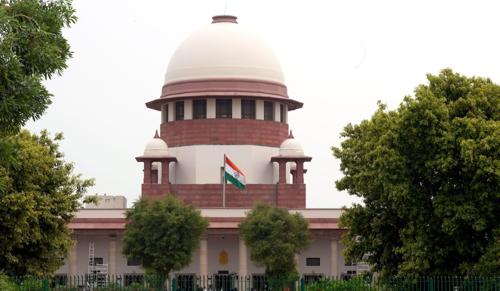
Supreme Court Allows POSH Inquiry Against IRS Officer Accused of Sexual Harassment by IAS Officer
The Supreme Court has allowed the continuation of an inquiry under the POSH Act against IRS officer Dr. Sohail Malik, who is accused of sexually harassing an IAS officer.
The Court held that the Internal Committee of the IAS officer’s department can proceed with the investigation even though the accused officer works in another ministry.
It said that the purpose of the law would be defeated if jurisdiction depended on organisational boundaries rather than the workplace where the complainant faced harassment.
The proceedings will now continue before the Committee.
[Dr. Sohail Malik v. Union of India & Anr.]
MahiraBookmark
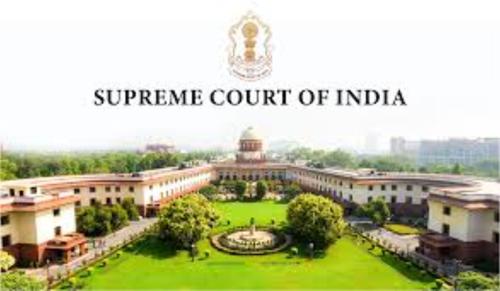
Supreme Court Clarifies That Women’s Representation Rule Applies to All Gujarat Bar Associations
The Supreme Court has confirmed that its earlier order mandating assured representation for women applies to all Bar Associations in Gujarat, irrespective of their nomenclature or classification.
A Bench led by CJI Surya Kant clarified that no Bar Association can avoid compliance by calling itself a different category.
The clarification arose in a miscellaneous application in Meena A. Jagtap v. Bar Council of India & Ors., resolving all ambiguity about the scope of the May 9, 2025, order.
The Court emphasized that the mandate applies uniformly to all Bar Associations operating in Gujarat.
[Meena A Jagtap v. Bar Council of India & Ors.]
MananBookmark

Supreme Court: Woman May Approach Her Own Department’s ICC For Harassment By Outsider
The Supreme Court held that a woman employee can file a sexual harassment complaint before the Internal Complaints Committee of her own department even when the accused works for a different organisation.
The Court said the POSH Act aims to ensure a safe workplace and cannot be interpreted narrowly or technically that restricts the remedy only to complaints against co-employees.
It observed that denying jurisdiction in such cases would leave women without an effective forum, defeating the purpose of the statute.
It clarified that ICCs must follow a practical, victim-centric approach and that the respondent’s employer must cooperate with inquiries conducted by the ICC of the aggrieved woman’s workplace.
[Dr Sohail Malik v. Union of India & Anr.]
MahiraBookmark

Delhi High Court Holds Major Unmarried Daughter Can Seek Maintenance from Father Under Section 125 CrPC
The Delhi High Court upheld a Family Court order directing interim maintenance of ₹45,000 per month to a wife and her major unmarried daughter.
The Court was considering a challenge to the maintenance granted to the daughter in proceedings filed under Section 125, CrPC.
It held that while Section 125 CrPC restricts maintenance for major children, the Family Court may rely on Section 20 of the Hindu Adoptions and Maintenance Act to prevent multiplicity.
The Court found no error in combining both statutes and declined to interfere at the interim stage.
[Arun Kumar v. Sarla & Anr.]
Thanush SBookmark
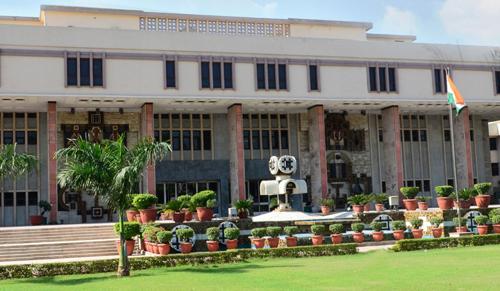
Delhi High Court Records Sun Pharma’s Assurance Not to Sell Semaglutide in India Until 2026
The Delhi High Court recorded Sun Pharmaceutical’s undertaking that it will not sell its semaglutide-based drug in India until March 20, 2026, when Novo Nordisk’s patent expires.
The Court allowed Sun Pharma to export the drug only to countries where Novo does not hold patent rights.
This development follows similar commitments recently given by Dr. Reddy’s Laboratories and OneSource Specialty Pharma in related semaglutide litigation.
The Court directed Sun Pharma to file an affidavit confirming its undertaking and to disclose details of its export accounts.
The company said it may rely on findings in the earlier December 2 order if appealed.
[Novo Nordisk & Anr v. Sun Pharmaceutical Industries Ltd]
MahiraBookmark

Karnataka High Court Halts State’s One-Day Monthly Menstrual Leave Policy for Women Employees
The Karnataka High Court has stayed the State’s notification mandating one paid menstrual leave per month for all women employees across industries.
The Bangalore Hotels Association argued that the government issued the mandate without legal authority and that existing labour laws already cover leave provisions.
The Court observed that the notification lacked clarity on the power under which it was issued and observed that such policies should be left to individual employers.
The State may seek modification of the interim order as proceedings continue.
MananBookmark

Supreme Court Seeks Response on Plea for Women’s Reservation in Bar Council Elections
The Supreme Court has issued notice to the Bar Council of India and all State Bar Councils on a petition seeking mandatory representation of women in elected bar bodies.
The petitioner submitted that women constitute a significant portion of practising lawyers but remain underrepresented in bar council elections, affecting their participation in professional decision-making.
The Court asked the BCI and state councils to file their responses, noting that the plea raises an important question about ensuring equal opportunities for women in the legal profession.
The matter will be taken up after the authorities place their stand on record.
[Petitioner v. Bar Council of India]
MahiraBookmark
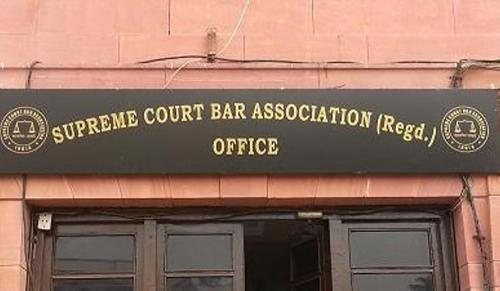
SCBA Survey Reveals Gender Bias: 38.5% Women Lawyers Find Profession Discouraging
A Supreme Court Bar Association survey on women advocates shows significant challenges in the profession.
Of 301 respondents, 38.5% described their professional experience as discouraging, while 57.8% said women do not have equal leadership opportunities. Gender bias was reported by 33.1% of 299 respondents, with many noting occasional or frequent bias.
Marriage and childcare created hardship for several respondents, including 38.2% after marriage and 56.8% after childbirth.
Work life balance emerged as the most cited challenge, followed by job opportunities, pay parity concerns and inadequate mentorship.
A majority (64.1%) said they would recommend a legal career to girls.
Thanush SBookmark
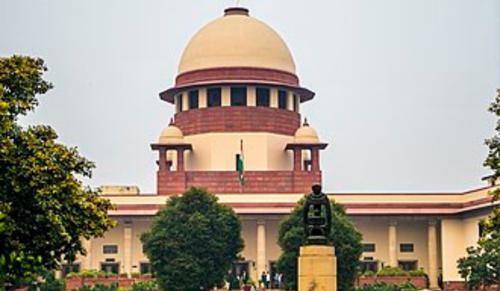
Supreme Court Directs BCI to Implement 30% Women’s Reservation in State Bar Council Elections
The Supreme Court has mandated the Bar Council of India (BCI) to ensure a minimum of 30% reservation for women in State Bar Council elections as well as in posts of office-bearers.
This direction, issued while hearing petitions filed by Supreme Court lawyers Yogamaya MG and Shehla Chaudhary, comes in response to the severe underrepresentation of women in Bar Council governance across India.
The Court underscored that the BCI must proactively implement this mandate, clarifying that the existing rules will be deemed amended to incorporate such a reservation.
Yogamaya’s petition specifically sought one-third reservation for women in all State Bar Councils and at least one woman office-bearer on a rotational basis.
[Yogamaya MG v. UOI]
YashashviBookmark

Supreme Court: Taking Photos or Videos of Woman Not Engaged in Private Acts Won’t Amount to Voyeurism
The Supreme Court observed that taking photographs or videos of a woman without her consent, when she is not engaged in a “private act,” does not amount to voyeurism under Section 354C IPC.
The bench discharged the accused, who was alleged to have intimidated the complainant by clicking her pictures on March 18, 2020.
The Court endorsed the Calcutta High Court’s decision, noting that the essential ingredients of voyeurism were not made out as the complainant was not engaged in any private act.
The appeal was allowed.
[Tuhin Kumar Biswas @ Bumba v. State of West Bengal]
MahiraBookmark

Supreme Court: Parent’s Work‑From‑Home Status Alone Not Enough for Child Custody
The Supreme Court held that a parent’s work-from-home status cannot be treated as a decisive factor in awarding child custody, noting that physical presence during work hours does not necessarily ensure better care or welfare.
The case concerned a challenge to a P&H High Court order transferring custody to the father.
The Court observed that, in modern circumstances, both parents often work, and custody decisions must prioritize the child’s emotional well‑being, stability, and comfort.
Since the child, now over five, was settled with his father and grandparents and unwilling to shift, the Court found no reason to interfere.
Thanush SBookmark

Supreme Court: Divorced Muslim Woman Can Recover Money and Gold Given at Marriage
The Supreme Court held that a divorced Muslim woman is entitled to recover money, gold ornaments, and other properties given at the time of marriage under Section 3(1)(d) of the Muslim Women (Protection of Rights on Divorce) Act, 1986.
The Court clarified that the provision covers mehr, dower, and all properties given before, at, or after marriage, and must be interpreted to secure a divorced woman’s dignity, equality, and financial protection under Article 21.
It set aside the Calcutta High Court’s order, which had rejected her claim over discrepancies in the marriage register, and directed the respondent to remit the amount with 9% interest.
[Rousanara Begum v. S.K. Salahuddin & Anr.]
Thanush SBookmark

Plea Filed In Karnataka High Court Against Govt Order Mandating One-Day Paid Menstrual Leave
A petition has been filed in the Karnataka High Court challenging the State’s notification mandating one day of paid menstrual leave per month for women employees in registered industrial establishments.
The petitioner, Bangalore Hotels Association, said existing statutes like the Factories Act and Karnataka Shops and Commercial Establishments Act already provide a comprehensive leave framework.
It argued that the government lacked legislative backing to impose menstrual leave by executive order and issued the notification without seeking stakeholder objections.
The plea claimed the mandate imposes financial burden and violates Article 14, seeking its quashing.
[Bangalore Hotels Association v. State of Karnataka]
MahiraBookmark
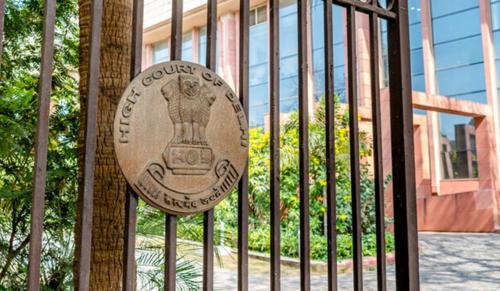
Delhi High Court Directs MEA To Ensure Safety Of Indian Woman In Dubai
The Delhi High Court directed the Ministry of External Affairs and the Consulate General of India in Dubai to take urgent steps to ensure the safety of a 25-year-old Indian woman allegedly held captive and abused by a foreign national.
The Court acted on her father’s plea. He said the foreign national seized her passport, restricted her contact, and that her October distress call revealed abuse and denial of basic necessities.
The Court asked authorities to verify the allegations, assist her return if she wishes, and file a status report within two weeks.
[V Thirunavukkarasu v. Union of India & Anr]
MahiraBookmark

Supreme Court Seeks Centre, Haryana’s Response on Menstrual Shaming Incident in Haryana College
The Supreme Court sought responses from the Centre and Haryana Government on an SCBA petition seeking nationwide guidelines after reports of menstrual shaming of female sanitation workers at Maharshi Dayanand University, Rohtak.
The plea highlights that workers were asked to send photographs of sanitary pads to prove menstruation to avail leave, violating their dignity, privacy, and bodily autonomy under Article 21.
The petition seeks directions to prevent such practices nationwide and ensure humane menstrual-leave policies, with SCBA indicating it will propose draft guidelines.
The Court listed the matter for further hearing on December 15.
[SCBA v. UOI & Anr]
Thanush SBookmark
